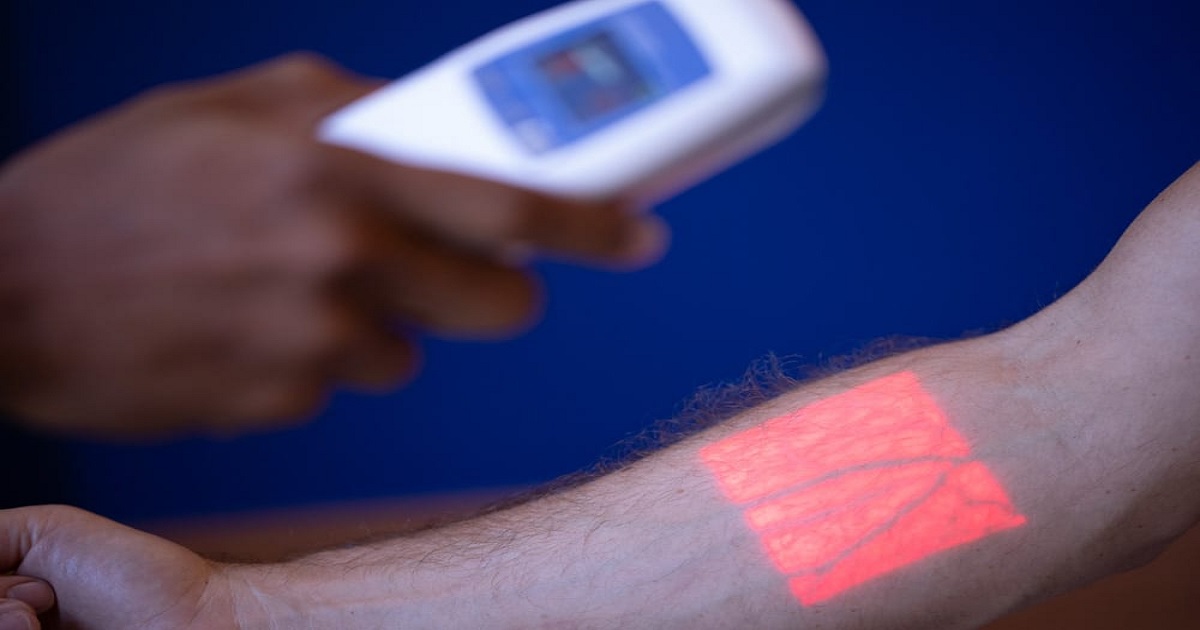
Healthtech Security
Article | August 31, 2023
While artificial intelligence (AI) offers numerous advantages across a wide range of businesses and applications, an ongoing report spreads out some convincing focuses on the different difficulties and perils of using AI in the social insurance segment. As of late, AI has been progressively consolidated all through the medicinal services space. Machines would now be able to give emotional wellness help by means of a chatbot, screen tolerant wellbeing, and even anticipate heart failure, seizures, or sepsis.
Read More

Health Technology, Digital Healthcare
Article | September 7, 2023
Healthcare is top of mind as the coronavirus hits hard everywhere. The inefficiencies of the system itself are on full display during the pandemic — where testing is hard to come by, diagnoses and treatments are reactive rather than proactive, and many people do not get the care they need, when they need it. Adrian Aoun, CEO and founder of Forward, a tech-driven healthcare startup, told Karen Webster that it’s possible to build a completely new healthcare ecosystem, beginning with primary care — and the overhaul needs to leverage data and artificial intelligence (AI).
Read More

Health Technology, Digital Healthcare
Article | July 14, 2023
Momentum in digital healthcare transformation… it’s massive, and much needed.
As organizations adapt to new modes of care, demands on resources, and consumer expectations, payors and providers are eyeing opportunities to reduce costs, improve care, build awareness, and expand relationships.Here are 8 trends we’re currently tracking into 2021:
TREND 1
The evolution of healthcare will be characterized by a reengineering of clinical care and operations around digital health and pervasive real-time use of data and advanced analytics. Gartner
TREND 2
The current landscape has underscored the importance of improving workflows, achieving greater clinical efficiencies and better integrating data across organizations through tools like natural language processing, remote process automation, and cloud-based technologies. Becker’s Hospital Review
TREND 3
Now more than ever, healthcare organizations must build a multi-channel digital experience portfolio to deliver personalized consumer-centric experiences that drive engagement and reduce costs. Becker’s Hospital Review
TREND 4
With increasing emphasis on cross-platform (EHR, CRM, CMS, virtual health, etc.) and cross-organizational data portability, advanced APIs and interoperability should ensure secure and efficient data exchanges between EHR systems, devices, and various channels of care. Forbes
TREND 5
COVID-19 has pushed telehealth into the mainstream, and adoption has gained impressive traction. Expect expansions of asynchronous virtual care leveraging integrated wearable technologies. Business Insider Intelligence / Research and Markets
TREND 6
With more healthcare data available, artificial intelligence and machine learning technologies will provide greater speed and insights to analyze and predict outcomes that drive change in patient care. Gartner / Forrester
TREND 7
Organizations will continue looking to Social Determinant of Health strategies to help understand health disparities – including those highlighted through COVID-19 infections – and alleviate some of the financial strains while delivering high quality care. Fierce Healthcare / Healthify
TREND 8
Successfully making the transition to offering greater price transparency will not only put healthcare organizations in compliance, but help satisfy patient demand, increasing patient engagement and even point-of-service payments. Health Leaders Media
The strategy imperative
With so much call for transformation, it’s vital to resist the pull of “shiny object” point solutions and to, instead, build a fully-considered digital strategy. Need help getting started? Our healthcare experts help the nation’s largest providers and payers navigate and execute their north star strategy, tackling specific challenges through assessments, best-practice advice, strategy, and roadmaps. Explore our thought leadership and connect with us to learn more today.
Read More

Healthcare Analytics
Article | December 21, 2020
Yes, empathy has become a fad.
Connecting to another human is actually something cool kids do now. If a brand doesn’t have an impact model that includes a practical social issue, consumers tend to not take that brand seriously. In this case, empathy needs to be revisited beyond the trend itself for these strategies to have real, lasting impact.
Practical strategies around compassion meanwhile have similarly become an intrinsic part of social impact organisations. They have become so commonplace that prosocial behaviour has strayed into a kind of tokenism. It is common for instance for consumers to donate their hard-earned money to companies who focus their energies on trying to alleviate real-world issues.
The question then is whether this proxy for compassion isn’t in fact watering down human connections, as well as our positive impact on the issues business and organisations seek to solve with our help.
Postmodern behavioral science
If it is, then we must understand why and how to change that. This is where postmodern behavioral science provides a possible better alternative to social impact strategies. Postmodern behavioral science suggests that the current approach to understanding human behaviour lacks even a rudimentary understanding of empathy, defined in the area of social impact as a discursive strategy that allows us to feel what the group we are trying to help is feeling.
Of course, compassion has very close ties with empathy. Empathy is an innate ability we all have, one that we can learn to develop and fine-tune over time. It is our emotional connection to another human, though one that lies beyond our own ego. It takes the perspective of the person who is struggling and seeks to understand their life, their struggle, and their worldview. It also resolves to value and validate their perspective and experience — something that donating money to a social impact cause does not.
In its broader definition, empathy is a shared interpersonal experience which is implicated in many aspects of social cognition, notably prosocial behavior, morality, and the regulation of aggression.
Empathy has a host of positive after-effects when applied as an interpersonal experience. If a social impact organisation is preoccupied with raising capital, then it is likely to disregard the practical worth of empathy for those who truly want to achieve its mission.
Immersive empathy
One way that behavioral science can contribute is to utilise tools that can help augment the experience of those in need for those needing to understand those needs. Both AR and VR can help people visualise and follow the stories of those who require compassion. These create virtual environments for partners, governments, and consumers to experience with the people they seek to help.
But of course, much of human behaviour is geared toward seeking pleasant experiences and avoiding unnecessary pain. Our in-built hedonic valuation systems guide decisions towards and away from experiences according to our survival instincts.
This is precisely why business owners who want to encourage empathy in their customers go the easy route, but should seek a more participatory frameworks to inspire and provide experiences for those on board with a social mission.
Then there are issues like financial literacy in underserved populations, access to clean water, education for women and girls, and environmental conservation, to name a few of the problems that social impact companies are attempting to tackle.
If a company is trying to tackle an issue such as access to clean water, then rather than start there, it should first ask exactly how this issue arose and developed. It should question the beliefs that underpin this chronic social inequality, those that inform policies, practices, cultural taboos, and beliefs about water and people’s access to it.
To simply respond to an issue in its developed form is to leave it unfixed. We must be willing to reverse engineer the origins of that issue that got us to where we are. In other words, human behaviour is not the only component to consider in this.
The main behavioral framework public servants should take with them is to develop a nudge unit solely based on the relationship between behavioural science and technology.
This is mainly because technology is an inevitable part of how we now relate to one another. Immersive Compassion meanwhile should embrace tools like AR/VR that seek to create empathetic environments and valuable impact longevity.
To fully embrace empathy as an organisation is to create relevant and rigorous responses that go as far as to alter the infrastructure of its target goals. Optimising social impact comes down to optimising human experience.
Read More